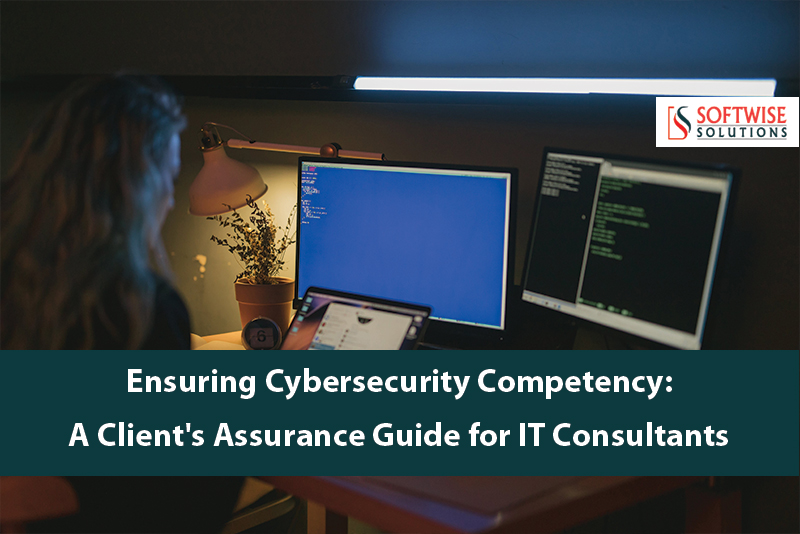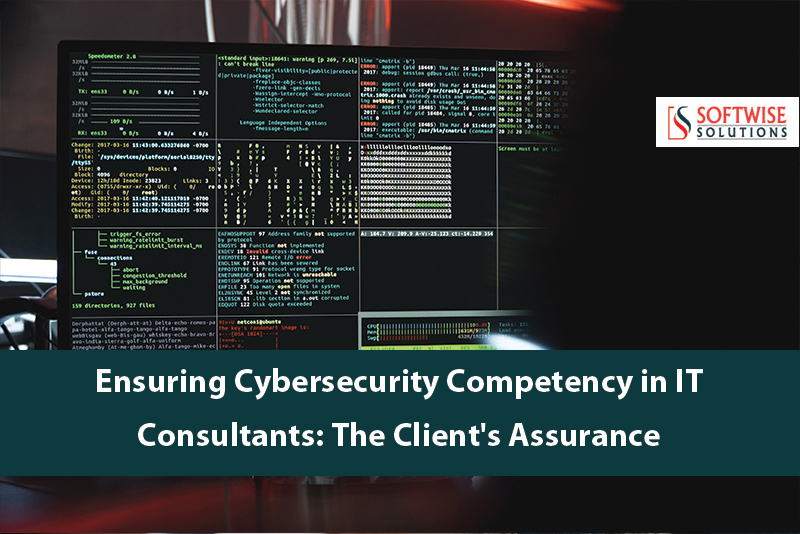In an era dominated by digital advancements, cybersecurity has become a paramount concern for businesses. As IT consultants play a crucial role in shaping and implementing technology solutions, ensuring their cybersecurity competency is vital for maintaining the trust and security of clients. Let's delve into the essential measures and best practices that both IT consultants and clients should embrace to guarantee a robust cybersecurity framework.
Understanding the Significance of Cybersecurity Competency
The increasing frequency and sophistication of cyber threats underscore the importance of cybersecurity competency among IT consultants. Clients entrust consultants with sensitive data, infrastructure, and systems, making it imperative for consultants to demonstrate a high level of cybersecurity awareness and capability.
Key Measures for IT Consultants:
1. Continuous Education and Training:
- Stay abreast of the latest cybersecurity threats, trends, and mitigation strategies through ongoing education and training programs.
- Obtain relevant certifications to showcase expertise in cybersecurity practices.
2. Robust Risk Assessment:
- Conduct comprehensive risk assessments for clients, identifying potential vulnerabilities and proposing effective security measures.
- Regularly update risk assessments to align with evolving cybersecurity landscapes.
3. Secure Development Practices:
- Integrate security into the development lifecycle, adopting secure coding practices and conducting regular code reviews.
- Implement secure coding frameworks to mitigate vulnerabilities in software and applications.
4. Client Collaboration on Security Policies:
- Collaborate with clients to establish and enforce robust security policies and procedures.
- Ensure alignment with industry standards and regulatory requirements governing cybersecurity.
Key Measures for Clients:
1. Due Diligence in Consultant Selection:
- Prioritize cybersecurity competency when selecting IT consultants.
- Evaluate consultants based on their track record, certifications, and commitment to ongoing cybersecurity education.
2. Collaborative Security Planning:
- Engage in collaborative security planning with consultants, clearly defining expectations and requirements.
- Foster open communication channels to address any security concerns promptly.
3. Regular Security Audits:
- Conduct regular security audits on consultant-delivered solutions to identify and address potential vulnerabilities.
- Implement a proactive approach to cybersecurity rather than reactive measures.
4. Continuous Monitoring and Incident Response:
- Establish continuous monitoring mechanisms for IT solutions, promptly detecting and responding to any cybersecurity incidents.
- Collaborate with consultants to develop robust incident response plans.
Addressing Common Questions on Cybersecurity Competency
Q: How often should consultants update their cybersecurity knowledge?
A: Consultants should stay updated on cybersecurity knowledge continuously, with regular training and education to align with evolving threats and best practices.
Q: How can consultants ensure the security of client data during the development process?
A: Consultants should implement secure development practices, including encryption, access controls, and regular security testing. Collaborating with clients on data protection measures is crucial.
Q: What steps can clients take to verify a consultant's cybersecurity certifications?
A: Clients can request proof of certifications, validate certification status through official channels, and inquire about the consultant's commitment to ongoing education in cybersecurity.
Q: Is there a standard framework for secure coding that consultants should follow?
A: Yes, consultants should adhere to established secure coding frameworks such as OWASP (Open Web Application Security Project) to mitigate common vulnerabilities in software and applications.
Q: How can clients foster a culture of cybersecurity awareness within their organizations?
A: Clients can conduct regular cybersecurity awareness training for employees, establish clear security policies, and promote a culture of reporting and addressing security concerns promptly.
Q: What role does encryption play in ensuring data security in IT solutions?
A: Encryption is a critical component in safeguarding data during transmission and storage. Consultants should implement strong encryption protocols to protect sensitive information.
Q: How can clients assess the effectiveness of their incident response plans?
A: Clients can conduct simulated cybersecurity drills, assess response times, and evaluate the efficiency of communication and collaboration between their internal teams and consultants during simulated incidents.
Q: What are the key elements of a comprehensive risk assessment conducted by IT consultants?
A: A comprehensive risk assessment should include identification of potential threats, vulnerability analysis, impact assessment, and recommendations for mitigating risks. Regular updates are essential to address evolving threats.
Q: How can consultants assist clients in complying with industry-specific cybersecurity regulations?
A: Consultants should have expertise in relevant industry regulations, work collaboratively with clients to understand their compliance requirements, and implement solutions that align with regulatory standards.
Q: Is there a certification that specifically validates a consultant's expertise in cybersecurity for IT solutions?
A: Certifications such as Certified Information Systems Security Professional (CISSP) and Certified Ethical Hacker (CEH) are widely recognized and validate a consultant's expertise in cybersecurity.
Seeking Further Guidance
Ensuring cybersecurity competency is a shared responsibility between IT consultants and clients. If you have more questions or need personalized guidance on cybersecurity measures, feel free to reach out to us at [email protected]. Collaborate for a secure digital future!
"Together, we build a shield against cyber threats, safeguarding the digital realm."










